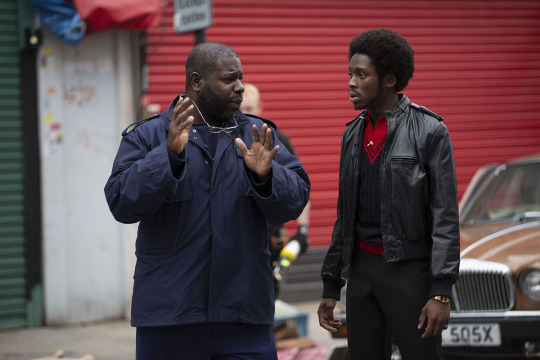#alex wheatle
Text
“nobody free till everybody free”
Alex Wheatle
Cane Warriors
0 notes
Text
Small Axe: Alex Wheatle (2020)
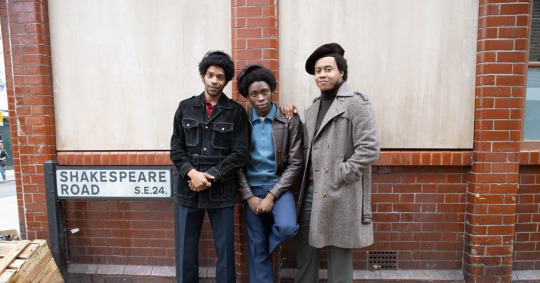
Upbringing is a complicated thing. The biopic character study Alex Wheatle explores the challenges of growing up Black in Great Britain without a family. Going through childhood and adolescence in the foster care system, Alex is subject to racism on top of all of the other abuses heaped on orphans by an indifferent and maladjusted system. But when he moves to London, he’s too White to fit into the Afro-Caribbean community that he’s trying to claim as his own. Especially as laid out in its opening act, society has built for someone like Alex a pipeline of pure misery, set up to fail at every turn and punished both legally and socially for things far out of his control. The pair of actors portraying Wheatle are perfect avatars of pure empathy: his is a silent or almost non-verbal presence through much of the early scenes, merely a victim of circumstances. Oftentimes the camera simply lingers on his traumatized face, drinking in the effects of what has happened to him, his complete isolation. Though it does even out and find its footing, the opening stretch seems to prepare the viewer for an exercise in naked misery as the character suffers from all sides. Indeed, all sides do strip him to the core: Alex is introduced undressed during his prison booking for a crime we don’t yet understand, and his potential music producer orders him to take off his clothes to prove he isn’t wearing a wire. Alex is adrift, loathed for the color of his skin by some and the nature of his learned mannerisms—coping mechanisms to fit in while in care—by others.
An oasis comes for Alex in the form of music. Reggae music is a release for him, a way to engage with his culture without judgment or expectations. It’s also, crucially, a way for him to begin to find his own voice. And that he does through his Crucial Rocker sound system, finally able to share something with others. Similarly, sound is crucial to his expression. How he chooses to express himself through his accent and dialect reflects how he chooses to engage with people. Initially slow to adopt mannerisms and terms, eventually he chooses to embrace Afro-Caribbean-influenced lingo. Sure, some can nitpick—his producer insists that he sounds too British—but who can blame him for being the product of his upbringing? Alex sure as hell didn’t have a say in the matter.
THE RULES
SIP
Voiceover narration begins.
Someone says 'money'.
BIG DRINK
A jump in the continuity of film occurs.
Raggae music is mentioned.
1 note
·
View note
Text
195. Cane Warriors, by Alex Wheatle
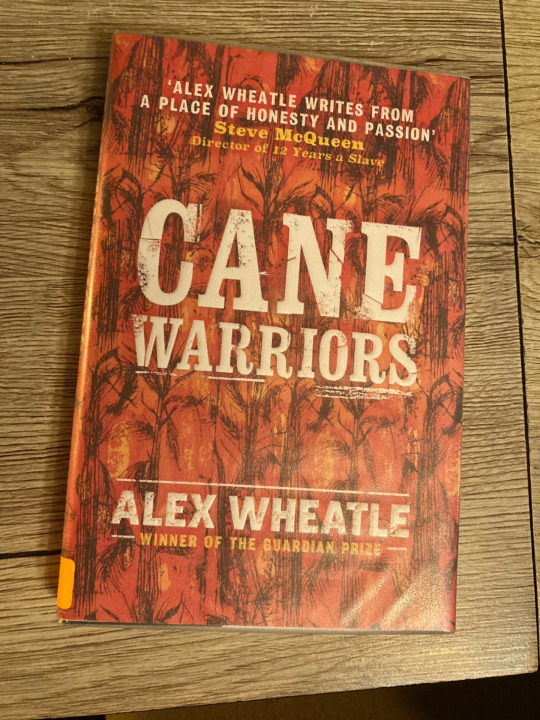
Owned: No, library
Page count: Moa was born into slavery, knows no other life. But that doesn't stop him wanting more. Even though he's only fourteen years old, he is ready to fight for his freedom, and the freedom of all Akane people in Jamaica. He has everything to gain, and everything to fight for. Nobody free 'til everybody free. The blood remembers.
My summary: 180
My rating: 4/5
My commentary:
This is a relatively short one that's been staring at me from the shelves for a while - I had it on display in October for Black History Month, and I read the summary then and thought it was interesting, so I wanted to check it out for myself. This is a short telling of Tacky's Rebellion in Jamaica in the 1760s - a slave revolt where the enslaved people rose up against their enslavers, but were brutally suppressed. Many of the fighters who survived the battles took their lives in the caves beneath Jamaica rather than be punished by their enslavers or return to slavery. It is, as is much of the history of slavery, a horrible little corner of history, but an important one to learn about.
The thing I found the most interesting about this book was how well it balanced the need to educate people about the historical incident and the need to tell a good story. Moa is an engaging viewpoint character, with a big heart and a lot of strength, who struggles with the morality of his actions even while seeing the necessity of them. And as a whole, the characters involved in Tacky's Rebellion as presented here are are very well humanised. The men aren't just fighters, they're people too. They have dreams of living free and growing old unbothered by white enslavers. They love their families and their friends. They honour their gods, primarily Asase Ya and Nyame, and mourn those who fall in the fight. And, importantly to the narrative, they look after Moa. Moa is the youngest of the rebels, and Tacky and the others make it increasingly clear that they do not expect him to fight, they do not expect him to lay down his life for the cause, because he is young and should get a future. They leave him out of the pact they make to die rather than return to slavery, and Tacky explicitly tells him to go back to his parents rather than lose his life. Moa stays as long as he can, a testament to his own courage and devotion, but eventually his life is saved after the chaos of the final battle and he returns to the plantation he is from, then takes off to the mountains and to an uncertain future.
This is a good device - not only in emphasising the humanity of the rebels, but also in giving a bittersweet rather than complete downer ending. Moa survives, but he's lost the fight and so many of his friends, and there's no guarantee of his safety. His parents and sister are still enslaved. It's showing history rather than whitewashing it; giving as good an ending as can be given. It's so clear that the author has a great amount of respect for the rebels and their cause - not surprising, given that he himself is Jamaican, and was told the stories of these events by his family. The author's personal connections with the story also add to its authenticity. All of the black characters talk in Jamaican dialect, and the narration is also delivered in the same dialect. It makes the white characters' standard English seem that much more jarring by contrast, othering them - interesting given that dialect is often used to other the characters who speak with it in white English fiction.
Finally, the last thing I thought was interesting was something I've alluded to earlier - the morality. When the rebels take over the plantations, they kill the white 'masters' and overseers, along with their wives and children. Moa, and a few other of the rebels, aren't really okay with the whole 'killing children' thing. In fact, nobody's really okay with it - those who see the necessity of it are still uncomfortable with the action, but they argue that those children would grow up to become enslavers, and is one white child worth the brutalisation and enslavement of their children? It's messy, and its complicated. There aren't any right choices, but the narrative makes the reasons why the characters did what they did clear, and maintains their sympathy throughout. Again, not whitewashing history, just showing it as it happened. It's admirable, and it's a very good read.
Next - time for some horror, with another Junji Ito collection.
1 note
·
View note
Photo
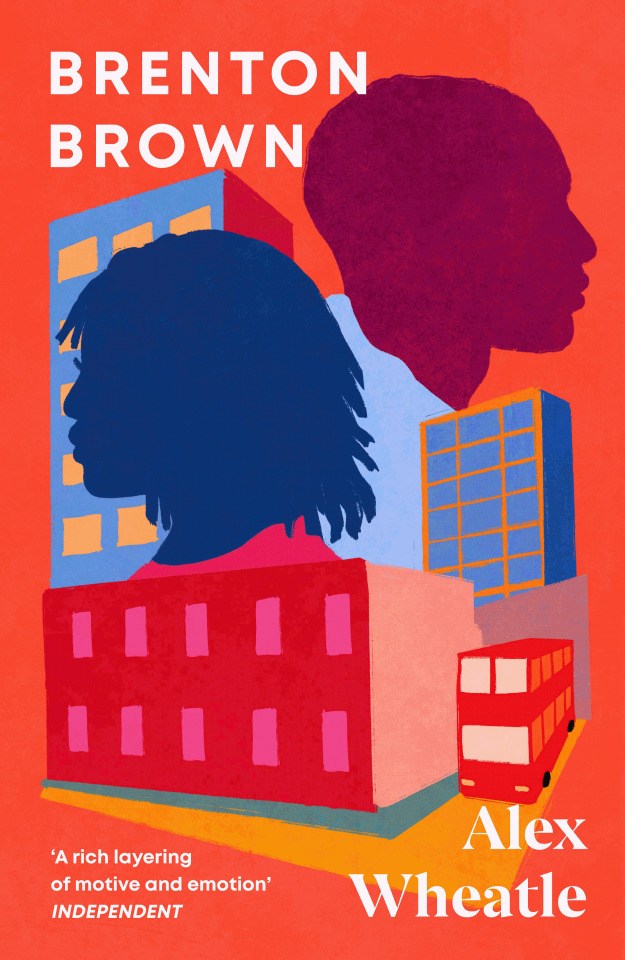
Brenton Brown
By Alex Wheatle.
Design by Holly Ovenden.
1 note
·
View note
Text
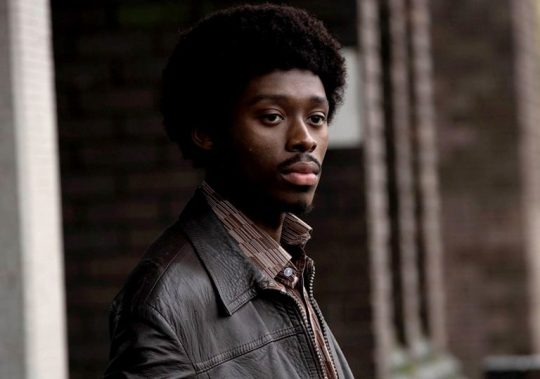
Sheyi Cole
0 notes
Text
1 note
·
View note
Text
Film Journal
“Alex Wheatle“ by Steve McQueen
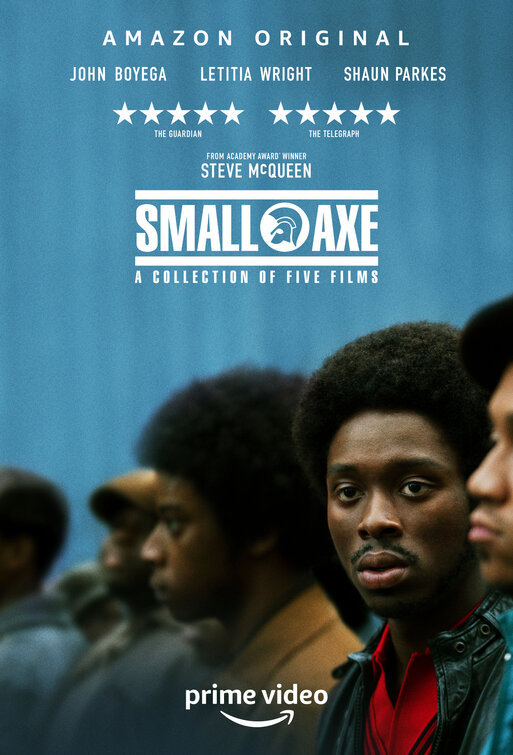
0 notes
Text
Quote of the Day - June 24, 2022
Quote of the Day – June 24, 2022
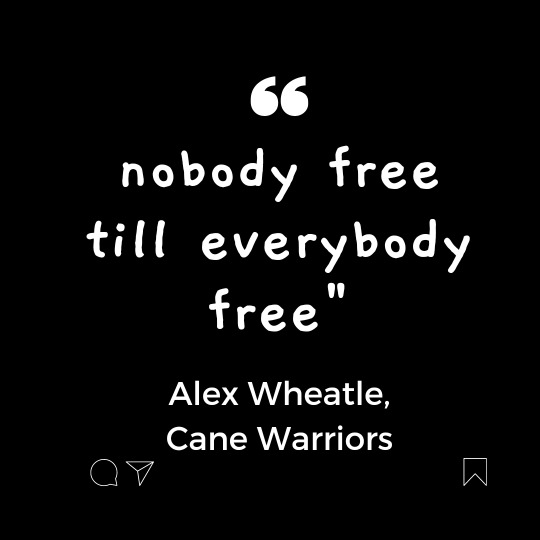
View On WordPress
#Alex Wheatle#Books#Cane Warriors#Caribbean American Heritage Month#Caribbean Authors#Caribbean Culture#Quotes from Books#UK#UK YA Books
0 notes
Photo
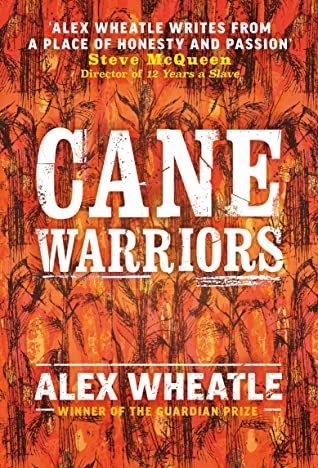
Cane Warriors by Alex Wheatle
Challenge #11 ~ “A book from the historical fiction genre.”
★ ★ ☆ ☆ ☆
My opinion in three sentences:
This is the kind of history we could all benefit from being more aware of – in schools, in society, in our reading – and Wheatle puts together a well-researched and accessible account. Even better, it is one targeted at a middle grade audience, making it a perfect resource and springboard for discussion in schools. However, for me (and this could in part be due to not being the target audience), I found the characters rather underdeveloped and the plot a little lacking overall.
(Without spoiling anything) the best bit:
The historical context was not one I was specifically familiar with, despite it’s importance, and Wheatle’s work shows clear signs of strong research. And if that wasn’t good enough alone, it manages to educate the reader throughout the book without becoming preachy or resorting to info-dumps – the ideal for historical fiction, if you ask me.
A warning for the book:
The tone/language Wheatle uses is quite jarring. It’s written as it would be said, regional phrasing, grammar and all, (or I think it is as that’s what was read in the audiobook) and that definitely takes some getting used to. I found it challenging enough as an audio version that I’m not hesitant to admit that I would definitely have struggled were I simply reading it. As with most books that employ such a technique, I don’t think it worked (or was necessary, though I can see why the author chose to use it), and can see it putting off more readers than it attracts, particularly considering its target audience.
0 notes
Text
5 Nonfiction Titles for Teens:
Akim Aliu with Greg Anderson Elysée and Illustrated by Karen de la Vega and Marcus Williams
Sufferah: The Memoir of a Brixton Reggae-Head by Alex Wheatle
Split Decision by Ice-T & Spike
Work With What You Got by Zion Clark and James S. Hirsch
The Summer of Hamn by Chuck D

#YA Biographies#social justice#overcoming obstacles#inthemarginsbookawards#ya literature#ya lit#adult titles with high teen interests
9 notes
·
View notes
Text
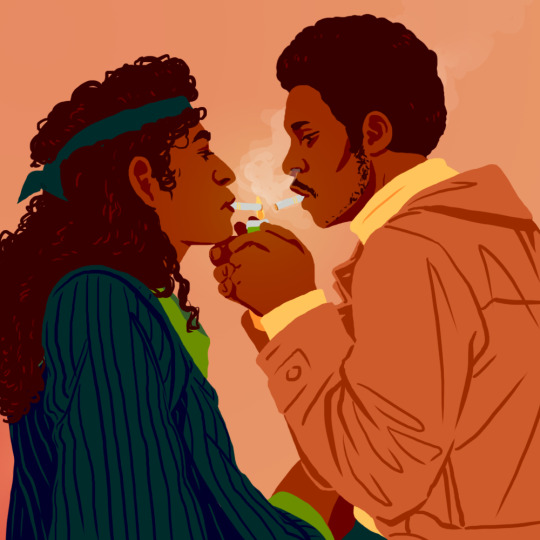
The Miserables Month: #21 Flame
/Feuilly appreciation week
@themiserablesmonth @feuillyweek
Featuring the return of 1970s Jehan!
Anyway I based this Feuilly look very loosely on Alex Wheatle as portrayed in the miniseries Small Axe (dir. Steve McQueen), that I recommend a lot! (tw for police violence if you decide to watch)
#jehan#jean prouvaire#feuilly#les mis#les miserables#the miserables month#the miserables month 2022#modern au#1970s au#smoking tw#does this need a tw ? idk#this is the one where bahorel was standing on the back#and it didn't look so good#fave arts#2022#my art
61 notes
·
View notes
Text
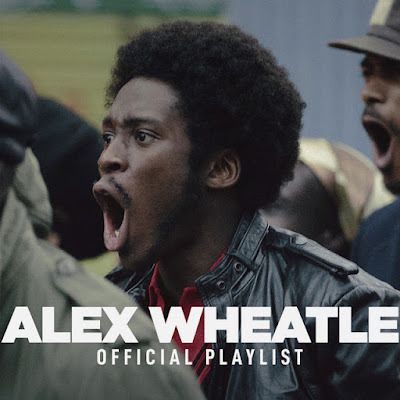
Small Axe - Alex Wheatle (2021)
01. The Abyssinians - Satta Massagana
02. Rupie Edwards - Ire Feelings (Skanga)
03. Max Romeo & The Upsetters - War Ina Babylon
04. The Beat - Mirror in the Bathroom
05. Dennis Brown - Wolf & Leopards
06. Pretenders - Brass in Pocket
07. The Flames - Zion
08. Prince Far I - Throw Away Your Gun - 12 Mix
09. Burning Spear - Slavery Days
10. Bob Marley & The Wailers - Time Will Tell
11. Bob Marley & The Wailers - Trench Town Rock
12. Creation Rebel - Frontline Dub
13. Black Uhuru - Guess Who's Coming To Dinner
14. Augustus Pablo - Africa Dub
15. The Main Attractions - Once Upon a Time
16. The J Sisters - I Can't Give You Anything (But My Love) - 7 Mix
17. Sugar Minott - Oh Mr DC
18. Leroy Smart - Pride & Ambition
19. Eek-A-Mouse - Long Time Ago
20. Bob Marley & The Wailers - Natural Mystic

#Small Axe#Lovers rock#Film#Music#Reggae#70s music#Romantic reggae#Janet Kay#Alton Ellis#Barry Briggs#Sandra Cross#Kofi#Carrol Thompson#Dennis Brown#Louisa Mark#Jean Adebambo#Gregory Isaacs#Marcia Airken#Christine Lewin#Junior English#Mangrove#playlist#Red White And Blue#Alex Wheatle#Lovers Rock
5 notes
·
View notes
Text
87. Kemosha of the Caribbean, by Alex Wheatle
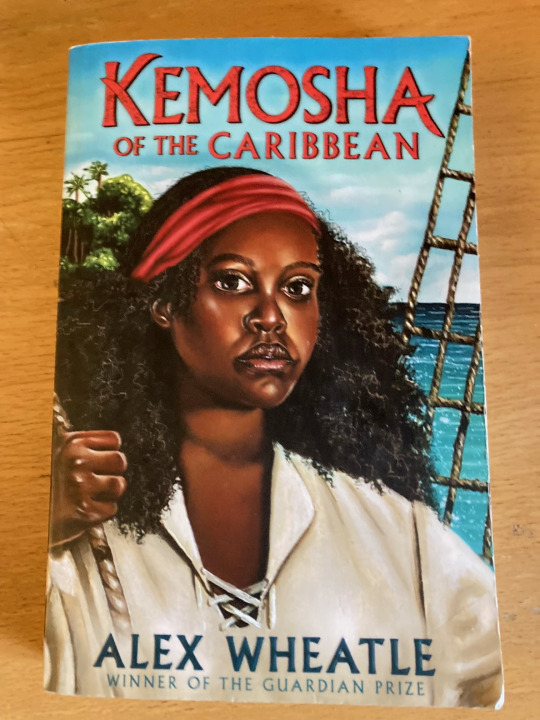
Owned: Yes
Page count: 306
My summary: Kemosha Tate was born into slavery. After her mother died, she was left the only guardian of her younger brother, trying to save him from the harsh plantation life they both must lead. But when she’s sold away, a rare opportunity to escape arises. When she gains her freedom, she knows what she must do. But there are so few opportunities for a black woman in the Caribbean - so she must rely on her skills and wits to survive.
My rating: 3.5/5
My commentary:
If you know me at all, it's really obvious why I picked up this book. A story about Caribbean piracy? Hell yeah! I had high hopes going in, hopes which were in retrospect possibly somewhat misplaced. Or at least, my expectations were too high and not really based on anything other than my own desire for the book to be great. It's not bad or anything, I ultimately enjoyed it, but there were a lot of problems in the writing that led to it being a somewhat disappointing experience, which is annoying because it genuinely had a lot of promise.
My biggest problem with this book is that the prose often seemed kind of bland and matter-of-fact. Plot beats happened because it was the right time for them to happen; actions didn't always feel earned. I think the book might have been written for younger readers than I was expecting? This reads a lot more middle-grade than young adult. Everything is very black and white - sure, I wasn't really expecting sympathetic enslavers or anything, but it does fall into that trap of good people liking Kemosha, and bad people disliking her, with no in-between. One particular bugbear of mine was when songs and chants were mentioned - none of them bore any resemblance to any sea-songs or shanties that I knew, they didn't have any real rhythm and most didn't even rhyme, which was a weird choice. The prose was just far too simplistic and bland for me to really engage.
Which is a shame, because there was some really neat stuff in this book! The author explains in an afterword that he was in part inspired to write a young, black, female protagonist after seeing how black people in stories of Caribbean piracy get shafted or ignored. Seriously, I saw a book claim once that there were no black Caribbean pirates, as the white Caribbean pirates just saw them as property to be bought and sold. Which is true for some pirates, but the reality is that pirate crews weren't exactly working to some rulebook. There were as many pirate crews who set enslaved people on the ships they raided free as crews who treated them as property. Kemosha herself is a compelling protagonist, single-minded and determined to gain not just her freedom, but the freedoms of all of her loved ones. Some of the supporting characters were great as well, like Ravenhide, Kemosha's mentor, and Isabella, her lady love.
One last thing I thought was a nice touch is the use of dialect. While the book's first-person narration is in Standard English, Kemosha's direct speech and thoughts (as well as the speech of other characters) is written in Jamaican Patois, a creole language that evolved among enslaved people on Jamaica. It's not strict Patois (as far as my limited understanding goes) but a more anglicised version using English spelling so that it is more intelligible to an English speaking audience. Nevertheless, it still retains the grammar and sound of Patois, in particular Kemosha using 'me' as a first-person pronoun. It's really cool! I love the linguistic diversity on show here, and the characterisation that is borne from the dialects spoken by each character. Ravenhide, himself a black man, speaks Standard English - others from Kemosha's plantation speak a mix of Spanish and Patois. It did annoy me that the Spanish was rendered in Spanish and then translated by Kemosha's narration every time; either do something like '"Example!" she said in Spanish' or leave bits untranslated, we can pick up the context. But anyway, this was overall a fairly decent book, I just wish it could have been so much better.
Next, some tales from a crematorium.
1 note
·
View note
Photo
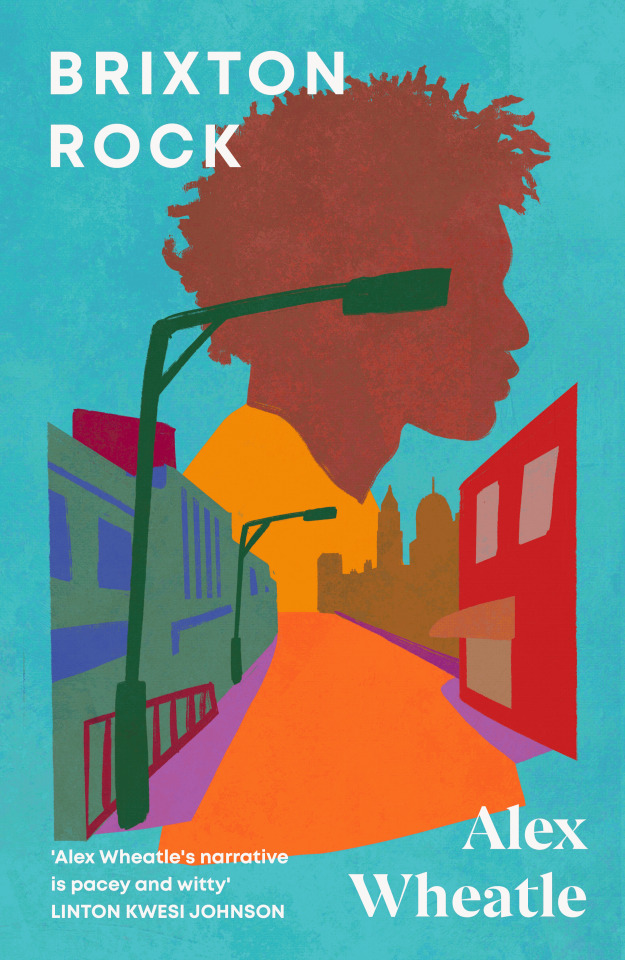
Brixton Rock
By Alex Wheatle.
Design by Holly Ovenden.
0 notes
Note
Your top 5 fav books + top 5 recommendations?
nice question! my top five favourites are:
the lonely londoners by sam selvon
another country by james baldwin
the house of hunger by dambudzo marechera
1984 by george orwell
go tell it on the mountain by james baldwin
I can’t pick five, so here are my recommendations:
black skin, white masks by franz fanon
the stranger by albert camus
agathe by anne catherine bomann
the wretched of the earth by franz fanon
things fall apart by chinua achebe
if beale street could talk by james baldwin
animal farm by george orwell
the sweet flypaper of life by roy decarava and langston hughes
all about love by bell hooks
brixton rock by alex wheatle
tao te ching by lao-tzu
a clockwork orange by anthony burgess
9 notes
·
View notes
